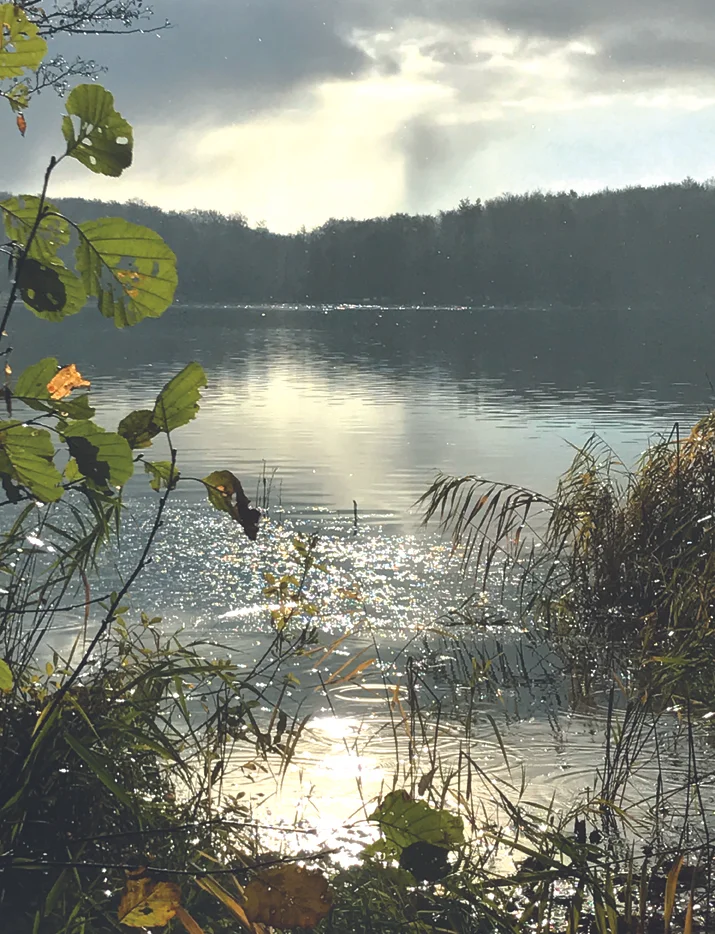Welcome to Engestofte Estate
Lolland's soil is rich and it is this special soil that made Lolland the place in Denmark most densely populated with manors and estates.
This is also where we find Engestofte; an old royal farm from 1457 – on the shores of Maribo's Søndersø.
The Maribo Lakes are one of Denmark's largest freshwater systems with a total of 1140 hectares.
Engestofte Estate - Nature Park Maribosøerne
Engestofte Estates is uniquely situated in the middle of the Maribosøerne Nature Park in a magnificent and unspoiled natural landscape.
The view from Engestofte over the lake area is undisturbed and one of the most beautiful, with no traces of buildings or other human activity. The estate is surrounded by rare, luxuriant animal and plant life, and if you take a walk through the forest, you can spot rare orchids, butterflies and see the fantastic sea eagles that breed here.
There is a sea of possibilities for unique and unforgettable nature experiences.
Engestofte Estate today functions as a forest, hunting and agricultural property.
The estate comprises a total of 830 Ha, which consists of arable land, forest and a large part of the Maribo lakes.
Engestofte Estate is owned today by the Egeskov family.
Engestofte has the first eagle nest
Sea eagles have been extinct in Denmark since the 19th century, but in 1996 the first breeding sea eagle came back and settled on Engestofte
Tour boat Anemonen
Experience the unique nature of the Maribo Lakes from the lake side with the tour boat Anemonen. Among other things, Anemonen offers tours to Borgø, part of Engestofte, where you can see unspoiled nature and the remains of a medieval castle. Turbåden arranges both public and private tours and is organized by Lollands Municipality and Nature Park Maribosøere. Read more here
Orchids
If you take a walk around Engestofte, you may be lucky enough to spot the spectacular flowers. They are all protected and some extremely rare.
Golf
Only 3 km from Engestofte you can find Maribo Sø Golf Club. The golf course is - like Engestofte - located in the scenic Natura 2000 area. The course is located in a very slightly hilly terrain around the beautiful Maribo Søndersø. Read more here
Fishing
The Maribo Islands are an excellent area for fishing with a sea of fish species such as e.g. pikes, perch and carp etc.
Cycle tours
In and around Nature Park Maribosøerne there are several beautiful cycle routes. Try, for example, the Søndersøruten of 20 km, which takes you around Søndersø, Maribo Cathedral, Engestofte and Søholt estates. Read more here
The story of Engestofte Estate
Over time, Engestofte has housed several important people, perhaps the greatest being the Danish freedom fighter Monica Wichfeld.
Monica Emily Wichfeld - Foto: Frihedmuseet
Engestofte designed by Ferdinand Richardt in 1867
Monica Wichfeld
*12.7.1894 in London, †27.2.1945 in Waldheim, Germany.
Monica Wichfeld was born into the British aristocracy and traveled here among the international jet set, together with Edward VII, Tallulah Bankhead, Gladys Cooper, Noel Coward and Winston Churchill, among others. In London's social life, she met Jørgen Wichfeld, who as a 22-year-old in 1907 had inherited the Engestofte Estate.
They were married in 1916 and had 3 children together. After many years abroad, the family moved back to Denmark in 1941, where they settled in Engestofte.
Monica Wichfeld met the writer Hilmar Wulff here and was introduced to the Danish resistance movement through him. Engestofte became a reception site for weapon drops and Monica also had plans to let British planes drop containers filled with weapons into the lake at Engestofte.
However, her plans were revealed and in January 1944, 15-20 German soldiers and plainclothes Gestapo officers moved into Engestofte and arrested her.
Monica Wichfeld herself was taken to Dagmarhus and later Vestre prison. She denied any knowledge of the conditions the Germans presented to her.
On 12 May 1944, she was brought before a court-martial, which sentenced her to death, as the first woman during the occupation. She was encouraged to seek a pardon, but initially refused this. However, due to pressure from her family, she still wrote an application. It was written in English, and as a mockery of the Gestapo on toilet paper. Monica ends her days in a prison in Waldheim, where she dies of tuberculosis on 27 February 1945 approx. two months before the liberation of Denmark on May 5, 1945.
"I am a Fatalist, and when my hour strikes, there will be no way around it."
Monica Wichfeld 1944











